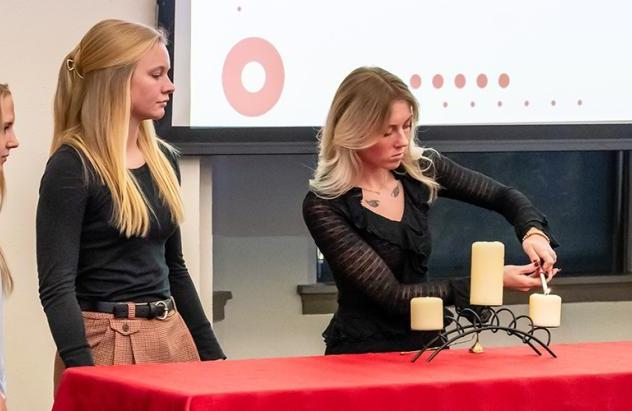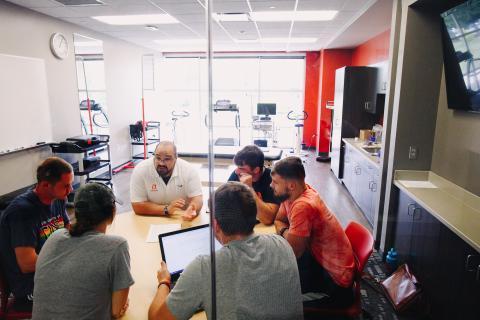Our Exercise Science major is designed to help meet the dynamic need of health specialists, specifically in fitness assessment, exercise prescription and program leadership. You'll be equipped with skills and competencies for careers in the growing fields of exercise physiology, personal training, strength and conditioning, cardiac rehabilitation, lifestyle management, and corporate wellness. Our curriculum prepares you to directly enter a career, or to pursue graduate programs in athletic training, occupational therapy, or physical therapy.
Courses
Below are the course requirements for the Exercise Science Major:
This does not replace official academic requirements in the university catalog. Enrolled students will work with their faculty advisor to ensure they meet all the requirements of their major.
Required:
- ESS 101: Emergency Care
- ESS 102: Foundations in Exercise Science
- ESS 212: Group Fitness Leadership
- ESS 306: Nutrition
- ESS 307: Nutrition II
- ESS 311: Exercise Testing and Prescription
- ESS 312: Exercise for Special Populations
- ESS 313: Measurement and Evaluation in Health and Physical Education
- ESS 391: Professional Practice in Exercise Science
- ESS 350: Practicum
- ESS 491: Capstone in Exercise Science
- ATR 389: Principles of Strength & Conditioning
- HSC 477: Kinesiology and Biomechanics of Exercise
- HSC 487: Exercise Physiology
- MTH 119: Statistics
- Either BIO 121 & 122: Intro to Human Anatomy I & II OR BIO 363 & 364: Human Anatomy and Physiology I & II
- ATR 213: Anatomy for Orthopedic Assessment
- HSC 150: Medical Terminology
Recommended Electives:
- ESS 240: Community Health
- ESS 317: Early Movement Experiences
- PSY 212: Sport Psychology
For a more detailed academic schedule, or to ask questions about any of our majors, contact the Admission Office at admission [at] 352396.com or (419) 448-2330.

Heidelberg's curriculum can be individualized, especially with research projects. This helped me transition to the next level of education.

Bio students honor the selfless sacrifice of body donors

#GO BERG!: Campus officially breaks ground on new Fieldhouse




